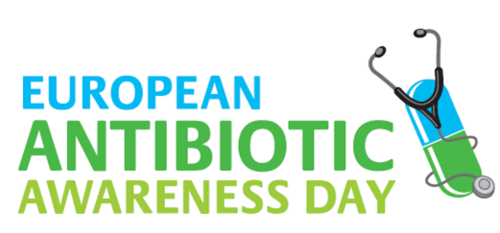Antibiotic-resistant bacteria present a growing public health problem and related infections have become an everyday occurrence in hospitals. A study, published in The Lancet Infectious Diseases on 18 November, 2015, showed that a new plasmid-based gene that enables bacteria to be highly resistant to polymyxins, a last line of antibiotic defence, is widespread in Enterobacteriaceae taken from pigs and patients in south China.
Professionals, patients, and the public all have a role to play in reducing the spread of antibiotic-resistant bacteria and ensuring that antibiotics are not misused.
From 16 to 22 November, 2015 the World Health Organization (WHO) and the European Centre for Disease Prevention and Control (ECDC) are raising awareness of correct antibiotic usage. ECDC held a live Twitter chat with professionals yesterday and has provided a ranges of resources for the public, primary care prescribers and hospital prescribers.
Very few new antibiotics are in development or have been discovered in recent years meaning that if antibiotic resistance continues to grow, there will be no effective antibiotics for treatment. Primary care accounts for 80%–90% of all antibiotic prescriptions, mainly for respiratory tract infections despite evidence showing that, in many cases, antibiotics are not necessary.
Unnecessary antibiotic prescribing in primary care is a complex issue, but it is mainly related to factors such as misinterpretation of symptoms, diagnostic uncertainty and perceived patient expectations. The ECDC highlights studies showing that patient satisfaction in primary care settings depends on effective communication and that prescribing an antibiotic for an upper respiratory tract infection does not decrease the rate of subsequent return visits.
The misuse of antibiotics in hospitals is one of the main factors that drives antibiotic resistance. It is thought that as much as 50% of all antibiotic use in hospitals is unnecessary, not streamlined when microbiological culture data become available or delayed, prescribed with the wrong dose, spectrum or duration.
ERS supports these important awareness events to help reduce the spread of antibiotic resistant infections.





